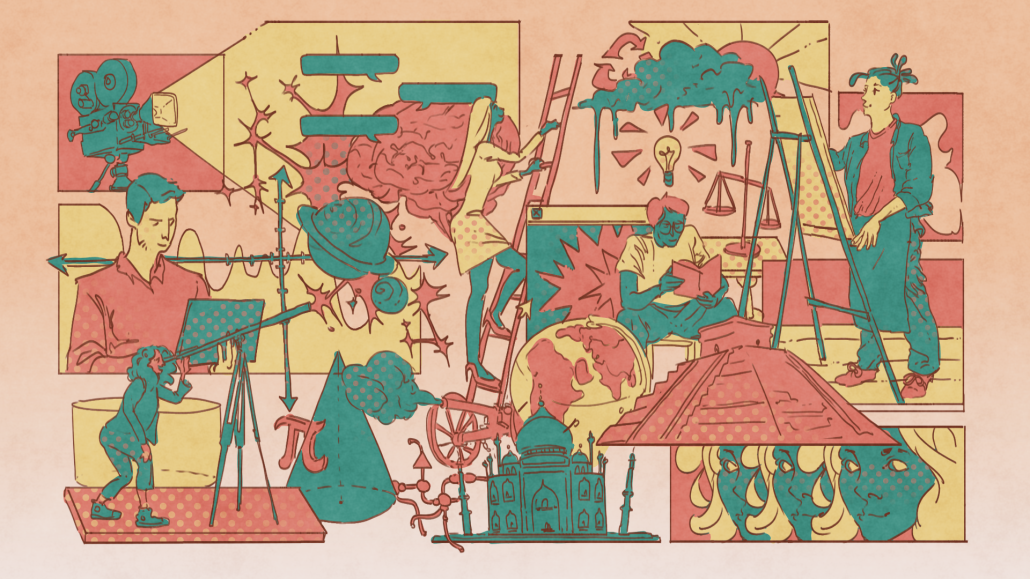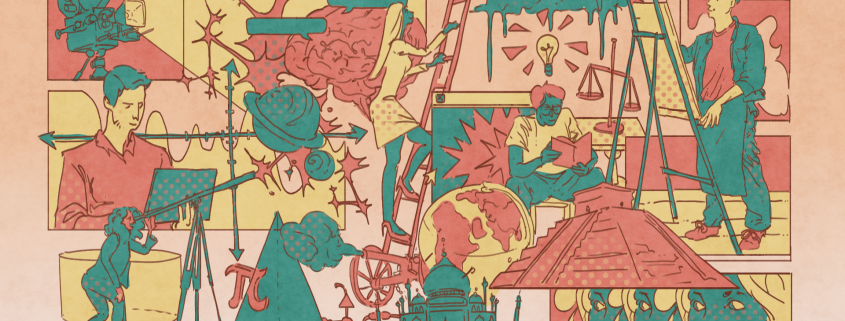Specializing in general education

Let’s be honest, we weren’t made to be monolithic experts in our major. No one is a born economist, engineer or historian. People are quick to label themselves, “not a math person” or “more artsy.” It’s no wonder then that people assume that general education courses are a waste of time.
However, the way we try to pigeon-hole ourselves into a label is delusional. I get it — we desire a sense of belonging and identity, especially with the capitalistic and societal pressures to make a name for ourselves.
I met a mechanical engineering student who professed to me that artistic endeavors are wasted efforts. In his mind, his field of study was what was truly important and the most useful. He expressed to me that if society focused only on STEM fields, we’d be a lot further along — as if progress precluded expression and play. However, I realized these analogous stories existed in other majors, too. We’ve all spoken to a student majoring in the Dornsife College of Letters, Arts and Sciences that had a bit too many perspectives and passions on things they’ve never actually experienced. I mean, at least their heart is in the right place?
Surely there’s a way to alleviate these issues though? These are soon-to-be college graduates that will go out into the world, impacting policies, the environment and society. Yet, there are so many dangerous gaps in their beliefs. The way we can fill in these gaps is already in front of us — interdisciplinary or holistic studies, otherwise known as general education courses.
It is necessary to interact across departments, rather than soaking in the cumbersome paradigm given by default in our respective majors. Do you really think a Marshall School of Business major is likely to educate you on the importance of non-performative social impact ventures? Though, these arguments just further feed into the narrative of turning us into effective capitalists. What about living? What about passion?
Truth be told, we have a human spirit and we are multifaceted with many interests — interests that many of us have squashed a long time ago in order to fit into the roles into which society wants to siphon us. Regardless, these interests will continue to persevere within us, a weak ember still flickering in our souls until our death beds. If you ever caught your dad in your room using your wardrobe to look like a teenage skater boy, complete with fingerless gloves, that’s what that was about. Midlife crises typically involve pursuing long forgotten interests; they never fade.
Boo happiness, boo passion, you may be saying. What about the point of college? What about actually getting a job? Okay, you’re right. At the end of the day, we need to compromise, because after all, we live in a society. But take Colman Domingo — perhaps you recognize him as Ali Muhammad from “Euphoria” — for example. Domingo pursued a journalism degree from Temple University. After undertaking an acting class as an elective, he was approached by his professor, who asked him if he had considered it as a career. This conversation transformed Domingo’s trajectory as he dropped out a few units short of graduating and went on to pursue acting instead. Domingo was able to build a successful career off of a single transformative elective class. I’d say college served its purpose for Domingo; he was able to receive a very impactful education and also get a job, albeit one not in the field of study he had originally pursued.
To better serve ourselves and society, we need to remind ourselves of the purpose of college. It’s most definitely not to become an autonomous robot with an unusually obsessive interest in our area of study. It’s to receive an education that enriches our lives. We need to ask ourselves when college became a rush towards a career we’ll be in for the next 45 years anyway, and why general education courses are considered a distraction rather than enrichment. From there, we’ll be able to pave a way forward to an education that is truly educational.

